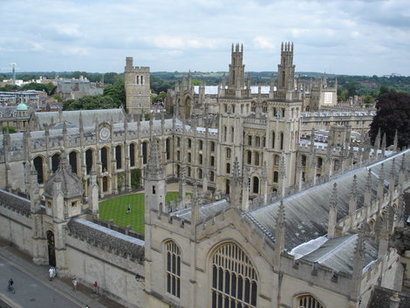
The Go Ultra Low Oxford (GULO) project, which is a trial run at present, is thought to be the first on-street charging pilot of its size in the world, described by Oxford University as being of ‘global scientific significance’. It will incorporate six different charging technologies installed, ranging from cable gullies to retrofitting lamp posts with charging stations – the aim being to find the best charging solution for Oxford residents.
The first phase of the project will see 30 charging stations installed. Ten of these will be available for the general public, another ten for Co-wheels Car Club vehicles, and the remaining for individual households. Installation of the charging stations has already begun and will be available for general use in October.
The trial will last for a period of 12 months in total, after which the best solutions will be rolled out in approximately 100 sites across Oxford’s streets. This is expected to happen in 2018. Oxford City Council chose the locations after calling for Oxford residents who either owned or wanted to own an electric vehicle to come forward. These 20 volunteers will provide feedback on the chargers as part of the trial.
The network of public chargers will be managed by NewMotion, a Dutch company with a wealth of experience in EV charging. People who wish to use the public chargers can apply to NewMotion for a free charge card and download the NewMotion app for real-time information on where chargers are available.
Co-wheels Car Club plans to introduce ten new electric cars in Oxford from this autumn, and will use the new charging points to power them. Alongside the project volunteers, the car club will also collect feedback on the chargers. This will be collated and analysed by researchers from the University of Oxford’s Transport Studies Unit (TSU) and the results will be fed back to the Government to inform national and local authority investment in charging stations in the future. The findings will also be shared with the global research community through publications in peer-reviewed academic journals.
Renewable energy company Good Energy will provide power to the public chargers from its network of solar, hydro, wind and biofuel generators, thereby meaning that electric vehicles using the public charging points will be run entirely on renewable energy. Private chargers will be run from the residents’ own energy supply.
Oxford City Council, which is managing the project, is working in partnership with Oxfordshire County Council on the scheme, supported by an £800,000 grant from the Government’s Office for Low Emission Vehicles (OLEV).
The £40 million Go Ultra Low Cities scheme was established by the Government to encourage British citizens to consider switching to EVs and the aim of the Oxford scheme is also to help reduce air pollution in the city while also lowering its carbon emissions. Currently, nitrogen dioxide levels are still above the legal limit in some areas of Oxford, despite a reduction of air pollution by an average of 36.9 percent over the last decade. Air pollution is estimated to cause 40,000 deaths per year in the UK, according to a report from the Royal College of Physicians and the Royal College of Paediatrics and Child Health.
“I’m thrilled that Oxford City Council is leading the delivery of the Go Ultra Low Oxford Project with Oxfordshire County Council” said Councillor John Tanner, City Council Executive Board Member for a Clean and Green Oxford. “This Government-funded project is tackling a real issue for many Oxford residents who would like to drive electric, but can’t have a charger at home because they have no driveway. By 2027 more people could be buying electric cars than petrol or diesel, and our project will help us prepare for this future.”
Councillor Ian Hudspeth, Leader of Oxfordshire County Council, added that the council is committed to working with partners to facilitate the transition to a low emission fleet in Oxford and Oxfordshire and that the project is a great example of using Oxford as a ‘living lab’ to get new ideas on the ground quickly to benefit residents.
For additional information:

